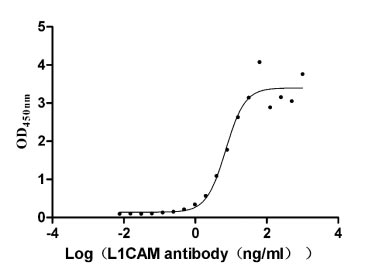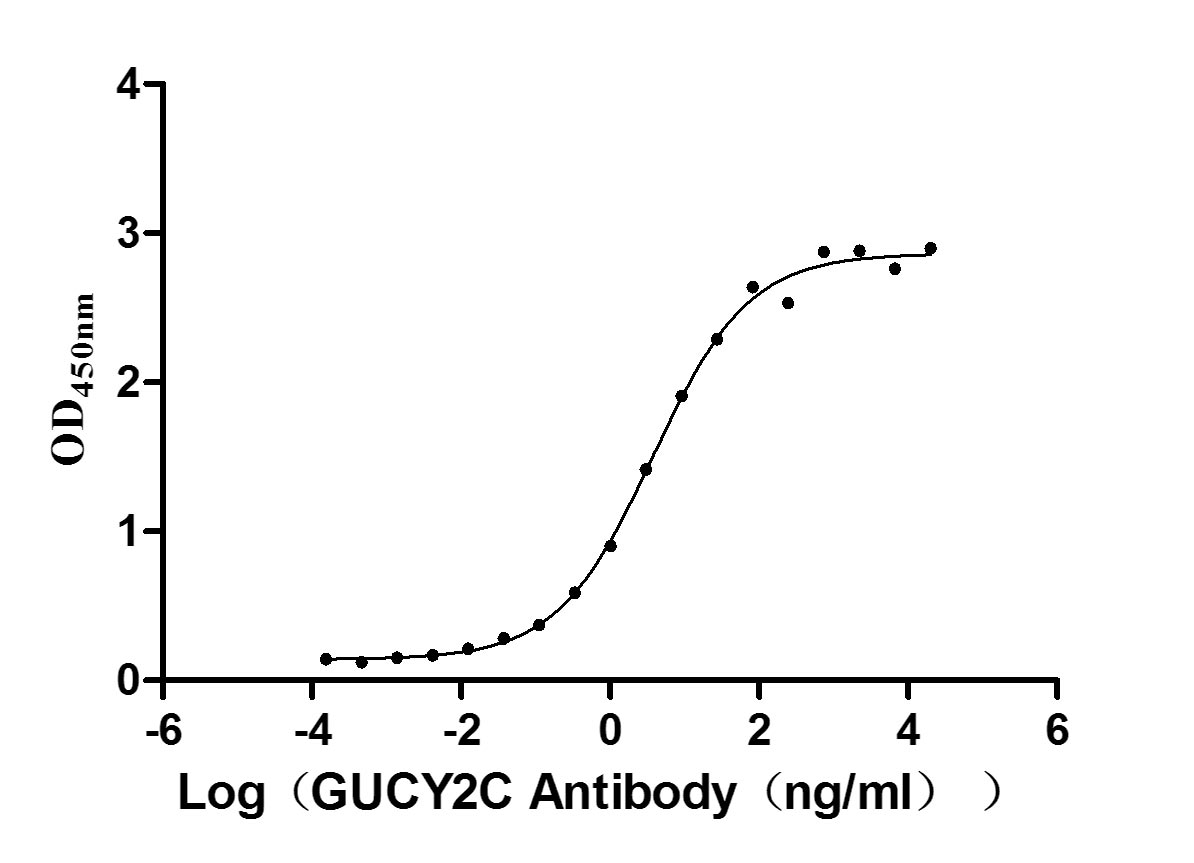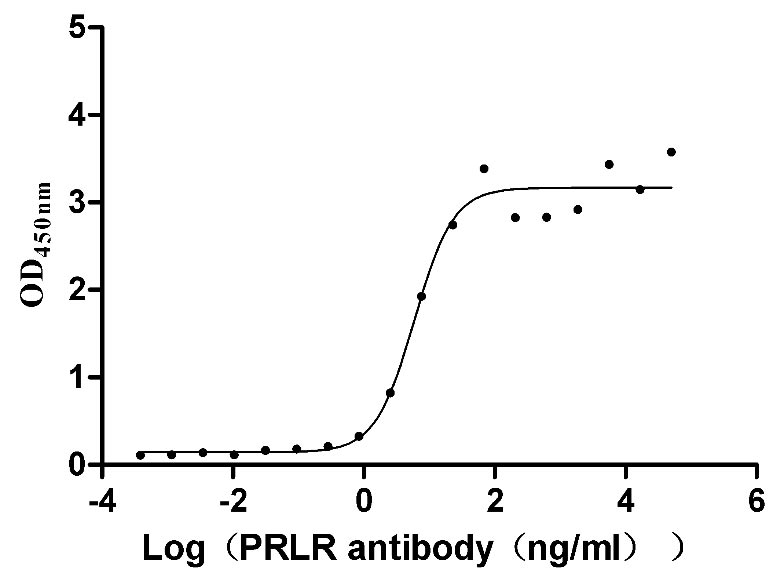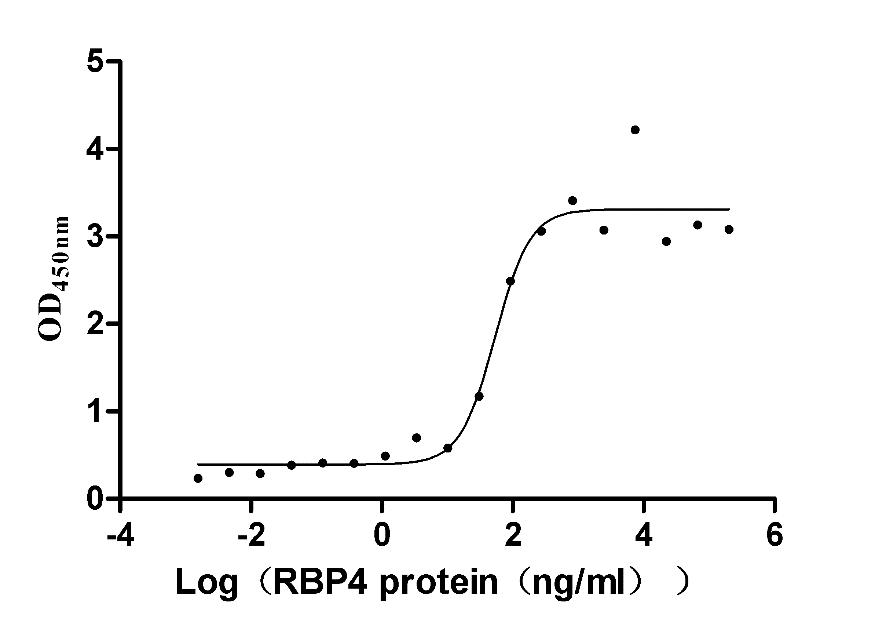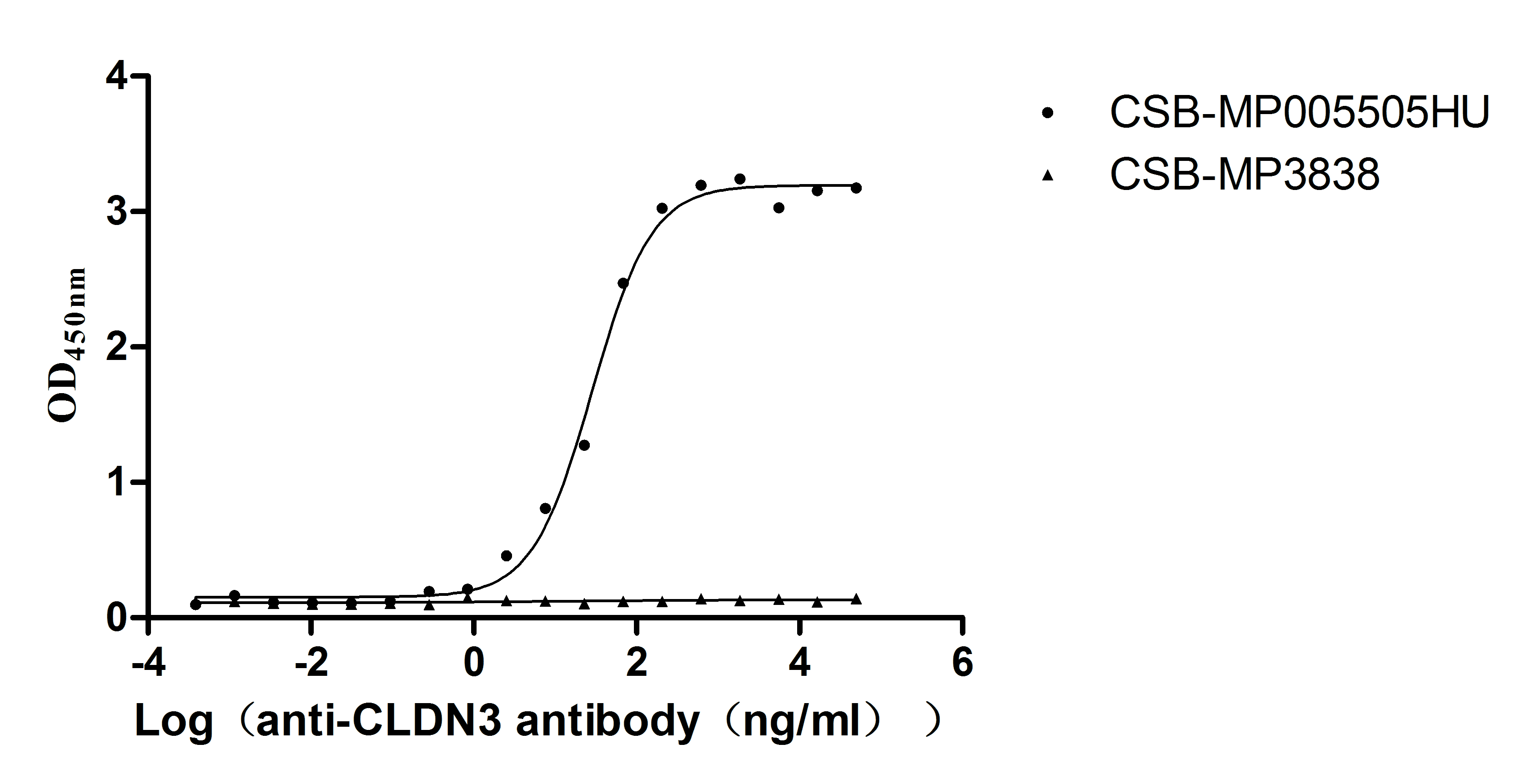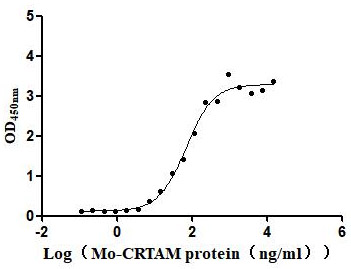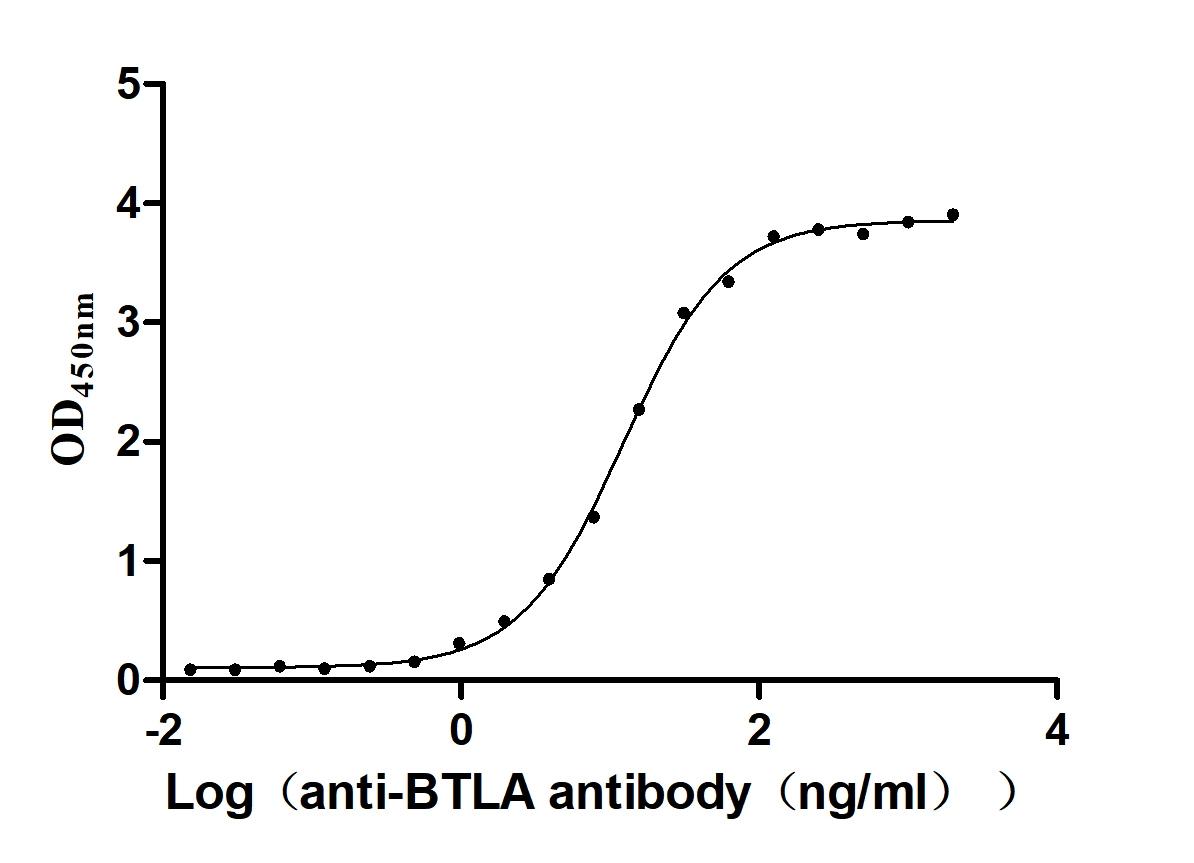Recombinant Mouse Anterior gradient protein 2 homolog (Agr2)
-
货号:CSB-YP001458MO
-
规格:
-
来源:Yeast
-
其他:
-
货号:CSB-EP001458MO-B
-
规格:
-
来源:E.coli
-
共轭:Avi-tag Biotinylated
E. coli biotin ligase (BirA) is highly specific in covalently attaching biotin to the 15 amino acid AviTag peptide. This recombinant protein was biotinylated in vivo by AviTag-BirA technology, which method is BriA catalyzes amide linkage between the biotin and the specific lysine of the AviTag.
-
其他:
-
货号:CSB-MP001458MO
-
规格:
-
来源:Mammalian cell
-
其他:
产品详情
-
纯度:>85% (SDS-PAGE)
-
基因名:Agr2
-
Uniprot No.:
-
别名:Agr2; Gob4Anterior gradient protein 2 homolog; AG-2; mAG-2; Protein Gob-4; Secreted cement gland protein XAG-2 homolog
-
种属:Mus musculus (Mouse)
-
蛋白长度:Full length protein
-
表达区域:21-175
-
氨基酸序列KDTTVKSGAK KDPKDSRPKL PQTLSRGWGD QLIWTQTYEE ALYRSKTSNR PLMVIHHLDE CPHSQALKKV FAEHKEIQKL AEQFVLLNLV YETTDKHLSP DGQYVPRIVF VDPSLTVRAD ITGRYSNRLY AYEPSDTALL YDNMKKALKL LKTEL
-
蛋白标签:Tag type will be determined during the manufacturing process.
The tag type will be determined during production process. If you have specified tag type, please tell us and we will develop the specified tag preferentially. -
产品提供形式:Lyophilized powder
Note: We will preferentially ship the format that we have in stock, however, if you have any special requirement for the format, please remark your requirement when placing the order, we will prepare according to your demand. -
复溶:We recommend that this vial be briefly centrifuged prior to opening to bring the contents to the bottom. Please reconstitute protein in deionized sterile water to a concentration of 0.1-1.0 mg/mL.We recommend to add 5-50% of glycerol (final concentration) and aliquot for long-term storage at -20℃/-80℃. Our default final concentration of glycerol is 50%. Customers could use it as reference.
-
储存条件:Store at -20°C/-80°C upon receipt, aliquoting is necessary for mutiple use. Avoid repeated freeze-thaw cycles.
-
保质期:The shelf life is related to many factors, storage state, buffer ingredients, storage temperature and the stability of the protein itself.
Generally, the shelf life of liquid form is 6 months at -20°C/-80°C. The shelf life of lyophilized form is 12 months at -20°C/-80°C. -
货期:Delivery time may differ from different purchasing way or location, please kindly consult your local distributors for specific delivery time.Note: All of our proteins are default shipped with normal blue ice packs, if you request to ship with dry ice, please communicate with us in advance and extra fees will be charged.
-
注意事项:Repeated freezing and thawing is not recommended. Store working aliquots at 4°C for up to one week.
-
Datasheet :Please contact us to get it.
相关产品
靶点详情
-
功能:Required for MUC2 post-transcriptional synthesis and secretion. May play a role in the production of mucus by intestinal cells. Proto-oncogene that may play a role in cell migration, cell differentiation and cell growth. Promotes cell adhesion.
-
基因功能参考文献:
- AGR2 accelerates skin wound healing through regulation of cell migration. PMID: 28665039
- AGR2 induced in ER-stressed and inflammatory pre-neoplastic pancreas is a potential marker of cancer progenitor cells with an important functional role in PDAC initiation. PMID: 27941872
- impact of AGR2 expression and EGFR signaling on tissue regeneration PMID: 27764193
- EGFR-mediated signaling in NCI-H460 cells is disrupted with reduced AGR2 expression. PMID: 25666625
- AGR2 has both intracellular and extracellular effects in the intestine PMID: 25111734
- Results indicate that DNA methylation within the AGR2 promoter modulates more aggressive cancer cell phenotypes. PMID: 24920423
- It was concluded that: the expression of AGR2 protein was significantly higher in asthmatic mice as compared with their normal counterparts; the expression was obviously related to the expression of Muc5ac protein and IL-13. PMID: 23392704
- Agr2 consequently serves to maintain the balance between proliferating and differentiated epithelial cells. PMID: 23209296
- Agr2 facilitates normal lobuloalveolar development by regulating mammary epithelial cell proliferation; we found no effects on apoptosis in Agr2(-/-) mammary epithelial cells. PMID: 22819674
- Loss of Foxp1/4 in the developing lung and in postnatal secretory epithelium leads to ectopic activation of the goblet cell fate program, in part, through de-repression of the protein disulfide isomerase anterior gradient 2 (Agr2). PMID: 22675208
- studies implicate Agr2 in intestinal homeostasis and ER stress and suggest a role in the etiology of inflammatory bowel disease PMID: 20025862
- AGR2 may be important for the growth and development of the intestine as well as esophageal adenocarcinomas. PMID: 18199544
- Overexpression of Agr2 is associated with asthma. PMID: 19028979
- AGR2 is a unique member of the protein disulfide isomerase family, with a specialized and nonredundant role in intestinal mucus production PMID: 19359471
显示更多
收起更多
-
亚细胞定位:Secreted. Endoplasmic reticulum.
-
蛋白家族:AGR family
-
组织特异性:Expressed in lung, skeletal muscle, testis, liver, stomach, colon, small intestine, the goblet cells of the intestine and the mucuous neck cells of the stomach.
-
数据库链接:
KEGG: mmu:23795
STRING: 10090.ENSMUSP00000020898
UniGene: Mm.7244
Most popular with customers
-
Recombinant Human Neural cell adhesion molecule L1 (L1CAM), partial (Active)
Express system: Mammalian cell
Species: Homo sapiens (Human)
-
Recombinant Human Heat-stable enterotoxin receptor (GUCY2C), partial (Active)
Express system: Mammalian cell
Species: Homo sapiens (Human)
-
Recombinant Mouse Prolactin receptor (Prlr), partial (Active)
Express system: Mammalian cell
Species: Mus musculus (Mouse)
-
Recombinant Mouse Retinol-binding protein 4 (Rbp4) (Active)
Express system: Mammalian cell
Species: Mus musculus (Mouse)
-
Recombinant Human Claudin-3 (CLDN3)-VLPs (Active)
Express system: Mammalian cell
Species: Homo sapiens (Human)
-
Recombinant Mouse Cell adhesion molecule 1 (Cadm1), partial (Active)
Express system: Mammalian cell
Species: Mus musculus (Mouse)
-
Recombinant Human B- and T-lymphocyte attenuator(BTLA), partial (Active)
Express system: Mammalian cell
Species: Homo sapiens (Human)


